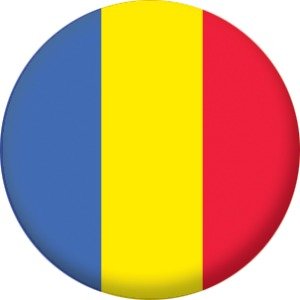General info (ROMANIAN, ENGLISH)
Psihologie Medicală şi Comunicare Medicală Health Psychology and Medical Communication 28 ore de curs, 28 ore de lucrări practice 28 lecture hours, 28 seminar hours
 INFORMAŢII GENERALE DESPRE CURSUL DE PSIHOLOGIE MEDICALĂ ŞI COMUNICARE MEDICALĂ
INFORMAŢII GENERALE DESPRE CURSUL DE PSIHOLOGIE MEDICALĂ ŞI COMUNICARE MEDICALĂ
Obiective: Achiziţionarea de către studenţi a cunoştinţelor teoretice şi a abilităţilor practice necesare în scopul aplicării psihologiei în intervenţiile legate de sănătate. Cunoaşterea modalităţilor în care diverse comportamente şi cogniţii influenţează sănătatea şi boala. Înţelegerea bolii în tripla ei dimensiune: biologică, psihologică şi socială. Cunoaşterea principalelor tipuri de intervenţii psihoterapeutice şi a locului şi rolului acestora în planul general de tratament, precum şi a rolului distinct al psihologului clinician în echipa terapeutică.
Format: Cursul este conceput ca un curs introductiv pentru studenţii din ciclul inferior de studii şi este structurat ca o serie de prelegeri (14) şi lucrări practice (14). Se aşteaptă ca participanţii să aibă cunoştinţe minimale de Psihologie, dobândite la liceu, şi care să le faciliteze asimilarea conceptelor-cheie de Psihologie Medicală şi Comunicare Medicală. Învăţarea va fi un proces interactiv, astfel încât studenţii sunt încurajaţi să pună întrebări şi să comenteze orice fel de chestiuni de interes legate de desfăşurarea cursului.
Scopuri: La sfârşitul cursului studentul trebuie să: 1.cunoască / înţeleagă rolul patogenic al factorilor psihologici în apariţia bolilor şi tulburărilor psihosomatice; 2.cunoască teorii şi concepte de bază cu privire la stress şi la instrumentele psihometrice de evaluare a acestuia; 3.cunoască rolul conceptelor de Psihologie a Sănătăţii în practica clinică de zi cu zi; 4.cunoască competenţele specifice psihologului clinician; 5.aibă abilitatea de identificare a principalilor factori psihopatogenici care reclamă necesitatea psihoterapiei şi consilierii; 6.deţină abilitatea de identificare a variatelor tulburări psihologice şi principalelor trăsături de personalitate corelate cu sănătatea şi boala; 7.să conştientizeze importanţa anumitor abilităţi relaţionale specifice rolului de medic în îmbunătăţirea complianţei terapeutice; 8.stăpânească noţiuni elementare de Comunicare Generală şi Comunicare Medicală; 9.personalizeze mesajele comunicaţionale în funcţie de specificul bolii şi al pacientului; 10.deţină un repertoriu comunicaţional adecvat în relaţia cu familia / aparţinătorii pacientului; 11.evalueze eficienţa / ineficienţa comunicării terapeutice; 12.cunoască caracteristicile de bază ale unor abordări psihoterapeutice şi să poată face recomandări pertinente în acest sens.
Cerinţe: Este necesară prezența activă la curs și lucrările practice (inclusiv la discuțiile din cadrul acestora). Prezența este monitorizată de către asistenții de grupă și este analizată în conformitate cu art.53 din Regulamentul de Activitate Profesională a studenţilor, disponibil la https://umfcd.ro/studenti/norme-legale/regulament-activitate-profesionala/
Evaluare: Notele se bazează pe performanţa studentului la examenul scris. Activitatea bună şi foarte bună la lucrările practice (exprimată în nota finală de 9 sau 10 obţinută la examenul practic) este considerată un plus.

GENERAL INFORMATION ABOUT THE COURSE OF HEALTH PSYCHOLOGY AND MEDICAL COMMUNICATION
Objectives: Acquiring by the students of theoretical knowledge and practical abilities necessary for applying psychology in health-related interventions. Knowledge about the modalities through which various behaviors and cognitions influence health and disease. Understanding of the disease in its triple dimension: biological, psychological and social. Knowledge about the main types of psychotherapeutic interventions, their place and role in the general treatment plan, as well as about the distinct role of the clinical psychologist in the therapeutic team.
Format: The course is designed as an introductory undergraduate course, and is structured as a series of lectures (14) and seminars (14). Students are expected to have a minimal background in General Psychology, obtained in high school, which would facilitate the assimilation of key concepts of Health Psychology and Medical Communication. Learning will be an interactive process, so all students are encouraged to ask and to comment on any possible issues of interest concerning the course.
Purposes: At the end of the course the student must: 1.know / understand the pathogenic role of the psychological factors in the onset of psychosomatic diseases and disorders; 2.know theories and basic concepts about stress and its psychometric instruments of evaluation; 3.know the role of Health Psychology concepts in everyday live; 4.know the specific competencies of the clinical psychologist; 5.have the ability to identify the main psychopathogenic factors that claim the necessity of psychotherapy and counselling; 6.have the ability to identify the various psychological disorders and the main personality traits correlated with health and disease; 7.possess certain communication skills specific to the doctor role and to be aware about their importance in improving compliance to the recommendations regarding sanogenic behaviors; 8. master basic notions of General Communication and Medical Communication; 9. customize communication messages, according to the specifics of the disease and the patient; 10. have an adequate communication repertoire in the relationship with the patient's family/relatives; 11. evaluate the efficiency / inefficiency of therapeutic communication; 12. know the basic characteristics of several psychotherapeutic approaches and be able to make relevant recommendations in this regard.
Requirements: Students are expected to attend regularly the course and the seminars, and to participate actively in group discussions. The attendance is monitored by the teaching assistants and is analyzed in accordance to article 53 from the Regulations of Student's Professional Activities, available at https://umfcd.ro/studenti/norme-legale/regulament-activitate-profesionala
Evaluation: Grades are based on student’s performances at the final exam. Good and very good activity at the seminar (expressed as a grade of 9 or 10 at the final seminar evaluation) is considered a plus.

